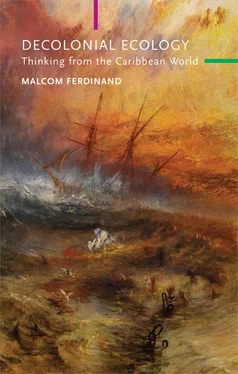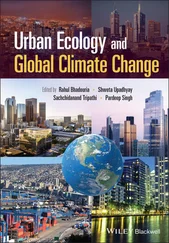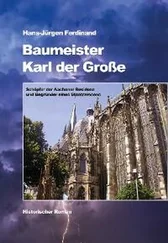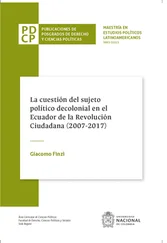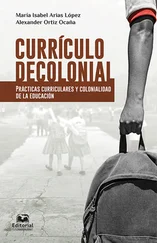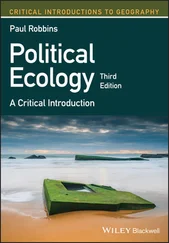This mass exploitation of human beings found its fullest expression in the establishment of the transatlantic slave trade and the enslavement of Black Africans in the Americas. Acknowledging without ambiguity the insertion of this history into a global history of humanity and the various kinds of servile relationships found there, it is important not to bury the specificities of these Caribbean enslavements to avoid offending certain political inclinations. 29The main difference in comparison with other slave trades is not only down to its intensity over a few centuries, its transoceanic distances, or its dehumanizations. The difference lies in its colonial character. Colonial inhabitation was the purpose of this slavery . Finally, the exploitation of human beings continued after the abolition of slavery through various forms of forced labor, including indentured servitude. The political history of the former French colonies of the Caribbean is a history of the maintenance of colonial inhabitation and its plantations and the recourse to different workforces. 30
With its principles, its foundations, and its forms, colonial inhabitation joins together the political and ecological processes of European colonization. The enslavement of men and women, the exploitation of nature, the conquests of lands and indigenous peoples, on the one hand, and the deforestations, the exploitation of mineral and soil resources, on the other, are not two different realities but are elements of the same colonial project. The European colonization of the Americas is just another name for the imposition of a singular, violent, and destructive way of inhabiting the Earth.
|
Principles |
Foundations |
Forms |
| Relationships to the land |
Geographical and ontological dependence |
Land grabbing |
Private ownership of the land |
| Relationships to non-humans |
Exploitation of non-humans |
Land clearing/deforestation |
Plantations |
| Relationships to other humans |
Othercide |
Massacre of the Amerindians and domination of women |
Servitude and enslavement |
Characteristics of colonial inhabitation
Since 1492, this colonial inhabitation of the Earth has spread, on a global scale, its plantations and factories, its geographical and ontological dependencies between cities and countryside, between countries of the North and those of the South, as well as its misogynistic enslavements. Parallel to the standardization of the Earth into monocultures, this colonial inhabitation erases the other, the one who is different and who inhabits otherwise. Colonial inhabitation creates an Earth without a world , leaving open the question posed by the poet-singer Gil Scott-Heron in “Who’ll Pay Reparations on My Soul?”: “What about the Red man/Who met you at the coast?” 31
1 1 Dominique Rogers and Boris Lesueur (eds), Sortir de l’esclavage: Europe du Sud et Amériques, XIVe–XIXe siècle (Paris: Karthala, 2018); Myriam Cottias, Elisabeth Cunin, and Antonio Almeida Mendes, Les Traites et les esclavages: perspectives historiques et contemporaines (Paris: Karthala, 2010).
2 2 Carolyn Merchant, Ecological Revolutions: Nature, Gender, and Science in New England (Chapel Hill: University of North Carolina Press, 1989), pp. 26–146.
3 3 Jean-Baptiste Du Tertre, Histoire générale des Antilles habitées par les François (Paris: Éditions Thomas Lolly, 1667), vol. 1, pp. 8–9. I have modified the language here.
4 4 Jean-Baptiste Thibault de Chanvalon, “Moments perdus ou sottisier,” in Voyage à la Martinique, 1751–1756: contenant diverses observations sur la physique, l’histoire naturelle, l’agriculture, les mœurs et les usages de cette isle faites en 1751 et dans les années suivantes, ed. Monique Pouliquen (Paris: Karthala, 2004), p. 261.
5 5 Martin Heidegger, “Building, Dwelling, Thinking,” in Poetry, Language, Thought, trans. Albert Hofstadter (New York: HarperPerennial, 2001), pp. 145–7.
6 6 Cardinal Armand Richelieu, “Commission aux Sieurs d’Esnambuc et du Roissey, capitaines du Roi dans les mers du Ponant, pour établir une colonie française aux Antilles d’Amérique,” 31 octobre 1626, in Du Tertre, Histoire générale des Antilles, p. 12.
7 7 Bernard Grunberg and Julian Montemayor, L’Amérique espagnole (1492–1700): textes et documents (Paris: L’Harmattan, 2014), p. 16. [Translator’s note: An English translation of this papal bull, Inter caetera, is available at https://papalencyclicals.net/Alex06/alex06inter.htm.]
8 8 Carl Schmitt, The Nomos of the Earth in the International Law of the Jus Publicum Europeaeum, trans. G. L. Ulmen (New York: Telos Press, 2006), pp. 86–100.
9 9 Emmanuel Levinas, Totality and Infinity: An Essay on Exteriority, trans. Alphonso Lingis (Pittsburgh: Duquesne Press, 1969), p. 37. [Translator’s note: Translation slightly modified; Lingis translates this as “way of the I.”]
10 10 Enrique Dussel, The Invention of the Americas: Eclipse of “the Other” and the Myth of Modernity, trans. Michael D. Barber (New York: Continuum, 1995), pp. 12–13.
11 11 David Watts, The West Indies: Patterns of Development, Culture and Environmental Change since 1492 (Cambridge: Cambridge University Press, 1987), p. 77.
12 12 Du Tertre, Histoire générale des Antilles, p. 76.
13 13 Watts, The West Indies, p. 154.
14 14 Du Tertre, Histoire générale des Antilles, p. 81. [Translator’s note: Coup de barre literally means “hit of rod” and is used to describe a feeling of sudden fatigue. A similar English idiom would be “hit by a ton of bricks.”]
15 15 Myriam Cottias, “L’Engagement des Blancs aux Antilles,” Revue de la Bibliothèque nationale de France: Outre-mer no. 39 (1991) : 32–6, at p. 35.
16 16 Bartolomé de Las Casas, A Very Short Account of the Destruction of the Indies, trans. Nigel Griffin (New York: Penguin, [1552] 2004).
17 17 Du Tertre, Histoire générale des Antilles, p. 6.
18 18 Jean-Baptiste Delawarde, Les Défricheurs et les petits colons à la Martinique au XVIIe siècle (Paris: Imprimerie René Buffault, 1935), pp. 54–5.
19 19 Louis-Philippe May, Histoire économique de la Martinique (1635–1763) (Fort-de-France: Société de distribution et de culture, [1930] 1972), pp. 70–1.
20 20 William Cronon, Changes in the Land: Indians, Colonists, and the Ecology of New England (New York: Hill & Wang, [1983] 2003), pp. 127–56.
21 21 André-Marcel d’Ans, Haïti: paysage et société (Paris: Karthala, 1987), p. 171.
22 22 “Ordonnance de MM. Les Général et Intendant qui défend aux maîtres de faire vendre du café par leur nègre, du 7 janvier 1734,” in Durand-Molard, Code de la Martinique, vol. I (Saint-Pierre [Martinique]: Imprimerie de Jean-Baptiste Thounes, 1807), pp. 378–9.
23 23 May, Histoire économique de la Martinique, p. 32.
24 24 Ibid., p. 42.
25 25 Translator’s note: Défricheurs literally means “land-clearers” or “fellers” and should be read in relationship to that colonial act of inhabitation. The term is more often translated by the English “pioneer.”
26 26 Du Tertre, Histoire générale des Antilles, vol. II, p. 454.
27 27 Translator’s note: The French word usually translated into English as labor force is main-d’œuvre, literally meaning “work hand.” This has a relationship to the English vocabulary around slavery worth noting, since it is lost in the more abstract “labor force,” as enslaved Black people were often referred to as “hands” in the accounting paperwork and financial discourse of slavers. See Edward E. Baptist, The Half Has Never Been Told: Slavery and the Making of American Capitalism (New York: Penguin, 2014).
Читать дальше
